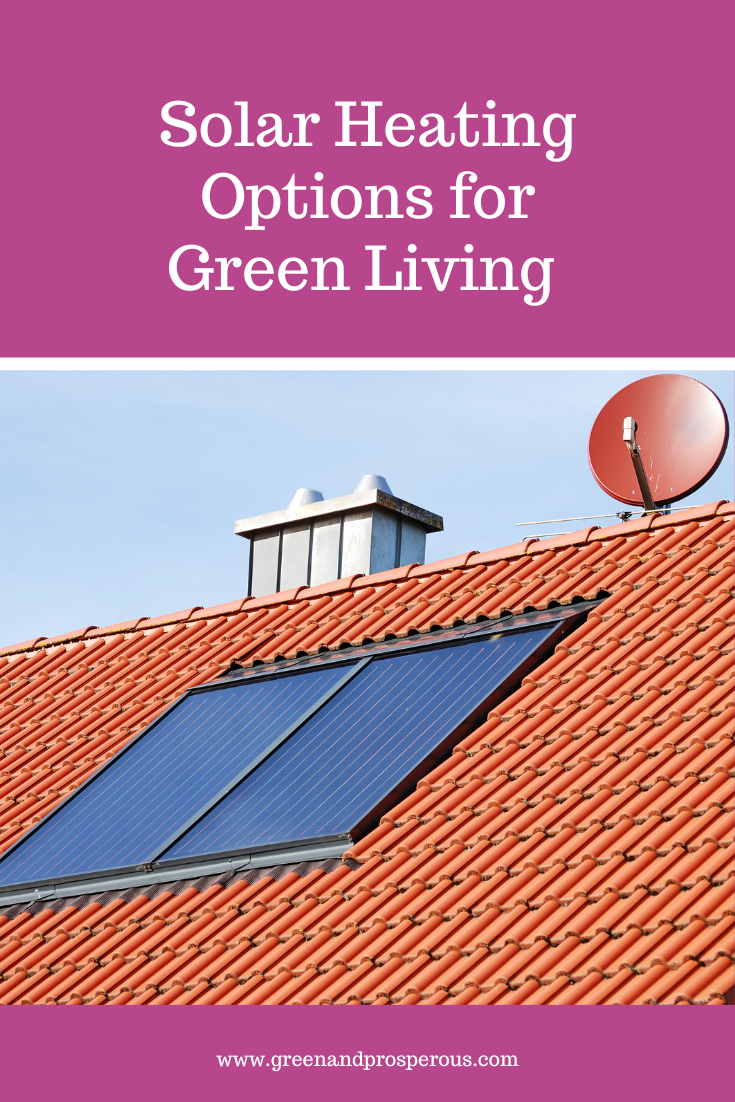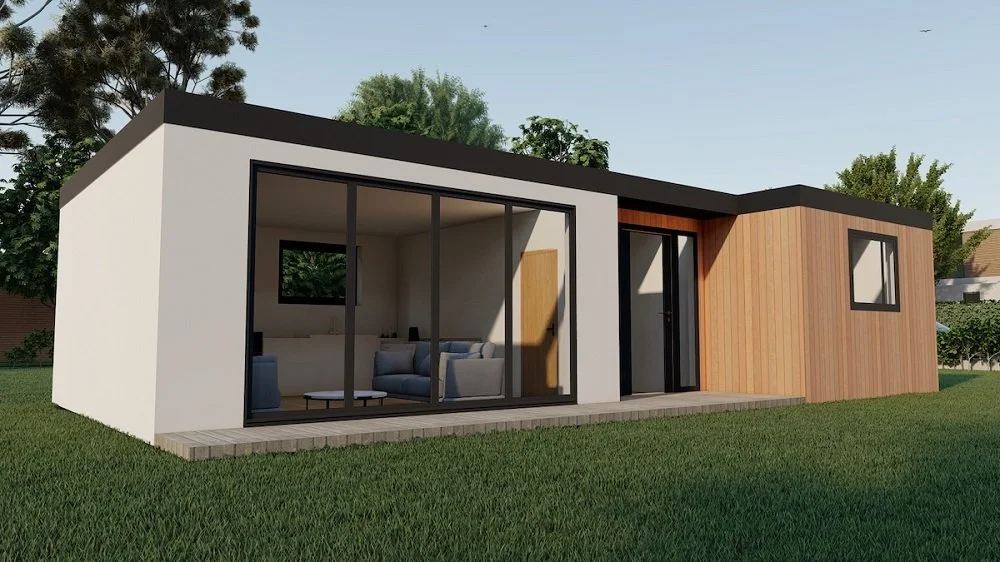Solar Heating Options for Green Living
/Heating, aside from being one of the main sources of carbon emissions, is also a major source of energy expenditures, often accounting for more than half of a household's total energy costs. This is why living sustainably can be both beneficial for the environment and cheaper for the average person, assuming they make the right choices for their home.
By investing in solar heating solutions or upgrading insulation, for example, homeowners can significantly reduce their energy bills while also lowering their carbon footprint. Other options like solar heat pumps, which use renewable energy to transfer heat from the air or ground, can significantly reduce energy consumption. Alternatively, solar electric boilers convert solar power into electricity to heat water or provide radiant heating, ideal for off-grid homes or those looking to cut down on fossil fuels. Similarly, thermal solar panels use the sun's energy to heat fluid that can be stored or circulated to warm spaces and water, offering a natural, efficient alternative to conventional heating methods.
The Importance of Solar Heating
Heat accounts for a substantial portion of global energy consumption, surpassing both electricity and transportation combined. It is responsible for over 40% of energy-related CO2 emissions worldwide. Despite this significant impact, decarbonisation efforts have primarily focused on electricity and vehicles until recently.
The energy crisis following Russia's invasion of Ukraine in 2022 brought renewed attention to heat decarbonisation as prices drifted upwards. The crisis also drove up prices of biofuels like wood pellets and chips, which were often used as an alternative source of energy. These fuels were once considered cheaper than fossil fuels, but this spike in price proved that the supply chain was prone to price changes.
All of that is to say, as even once-reliable fuels (including sustainable ones) have seen a rise in prices, solar is becoming more crucial. Even if your solar panels cannot cover the entire energy expenditure of your home, they can help curb a lot of the heating expenses when paired with alternatives to fuel-based solutions (including biofuels).
Aside from the positive impacts on the environment, you will also be free from the fossil fuel grid and the issues of the supply chain. This can be particularly pertinent in areas where gas is less available, which is one of the reasons Northern Ireland uses oil boilers rather than gas. An abundant resource like the sun is still waiting to be tapped by a large percentage of the world’s population.
Going gas-free can also make the home safer and decrease potential areas that may require repairs. Solar energy is easy to implement and causes little external harm (solar production can be a bit unsustainable).
So, what options are available to the average consumer?
Solar Heat Pumps
For residential purposes, heating consumes approximately 60% of household energy in the US. In Europe, this figure rises to about 80%. Fortunately, residential heating typically requires lower temperatures, making electric heat pumps and renewable electricity viable solutions for reducing emissions. Decarbonising industrial heat presents significant challenges but also offers substantial opportunities for reducing global carbon emissions and fostering innovation in sustainable manufacturing practices.
That’s where solar heat pump technology comes in. Combining both solar panels and heat pumps can be an expensive prospect, but it offers many benefits compared to standard boilers. Moreover, there are numerous grants you can apply for to help pay for both solar panels and heat pumps, allowing you to cut down on installation costs (depending on where you live).
An air source heat pump can be the least expensive option out of these. Despite being the cheapest option, it can still be 3 to 4 times more efficient than a gas boiler, so it’s already an upgrade. Additionally, one of the biggest advantages of a heat pump is that it can cool and heat homes, allowing for a year-round solution.
Solar Electric Boilers
Electric boilers work similarly to gas boilers but with the added benefit of being far more applicable to solar panels. On their own, electric boilers can be expensive to run, since electricity costs far more than gas per kWh in most countries. That’s why it can be better to opt for solar power or renewable energy of other kinds.
Electric boilers can be 99% efficient, allowing for processing most of the energy they receive. While they take up more energy than heat pumps, they are far cheaper and easier to install. Additionally, they can generally manage higher temperatures than heat pumps can overall (although they will lack cooling abilities).
Countries like the UK are phasing out gas boilers, so electric boilers might become the default choice. This will increase heating costs, so the best way to alleviate some of these is to add solar or other renewable energy sources to your home power grid.
Thermal Solar Panels
Thermal solar panels can also be an option. They aren’t always favorable as compared to other options, but they have their uses. You may already be aware that solar energy can be converted into electricity using solar panels, but there's another lesser-known method for harnessing the sun's energy for heating applications rather than electricity.
Similar to solar panels, solar thermal panels can help you lower your carbon footprint and reduce your monthly expenses by meeting your heating requirements with a completely free and renewable energy source. Although solar panels are more versatile than thermal solar systems, there are some benefits to the technology.
With solar thermal panels you can produce more efficient heating. Solar thermal panels are generally more efficient than PV panels because heat waves carry more energy than sunlight, and they don't require conversion into electricity.
This also means that these panels can operate effectively in cold climates, cloudy conditions, and strong winds. They also include an energy storage system. They also last for a long time and require low maintenance. Most systems come with a warranty of 5-10 years but can last up to 25 years with minimal work on the part of the homeowner. The primary expenses will be the installation cost, which can be quite high but worth it for some.
like this? please pin!
Finally, solar thermal panels can help you reduce carbon dioxide emissions by up to 600kg annually (UK figures). They aren’t the best choice on the list due to their price and lack of versatility, but they can still be a great way to make you home more sustainable.
About the Author:
Rawal Ahmed is known for his direct and precise writing style, ensuring complex technological concepts are accessible and easy to understand. Utilising journalistic rigour in his research, he excels at breaking down jargon and presenting practical, actionable information. His work reflects a deep commitment to advancing sustainability and empowering consumers with the knowledge they need to make informed decisions.
Please share your comments on this article! All comments containing links will be removed.
You may also be interested in…











































Heating, aside from being one of the main sources of carbon emissions, is also a major source of energy expenditures, often accounting for more than half of a household's total energy costs. This is why living sustainably can be both beneficial for the environment and cheaper for the average person, assuming they make the right choices for their home.